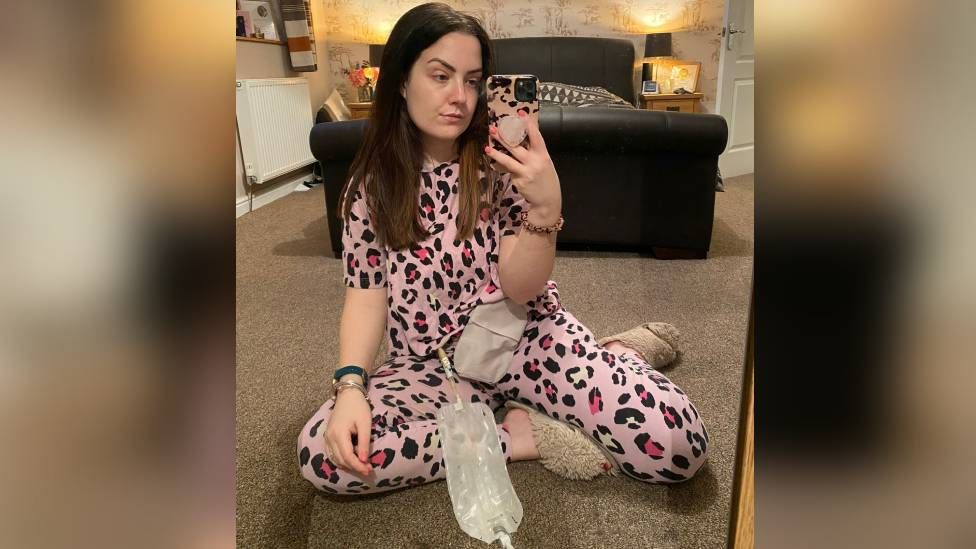A social media influencer who has a hidden disability claims that having a presence online has helped her to spread awareness and feel less isolated.
Endometriosis was discovered 11 years ago in Anna Cooper, a 29-year-old from Newbridge in the county of Wrexham.
She has undergone 16 separate surgeries and has two stomas and catheter.
Anna started posting about her experiences on Instagram because she didn't know where to turn.
"It's sometimes a bit daunting, bearing your soul online. But it helps people feel some sort of comfort," she said.
While not all people with long-term health conditions or stomas are legally considered disabled, Endometriosis UK said people whose conditions have a "substantial" and "long-term" negative impact on their lives can be classed as disabled - though they may have to fight for legal recognition.
Anna, who lives with her husband Scott and their daughter Grace, seven, said: "I was just constantly told that I was basically making it into a bigger deal than it was and I needed to understand that it was part of being a woman and painful periods were normal. ".
Anna had her daughter at the age of 22 following an extremely difficult pregnancy.
"I felt incredibly grateful and lucky, but it didn't come without its challenges," she said.
"I had constantly been told it would be much better once you've had a baby, the endometriosis will magically disappear, and it's not the case. For me, mine has been more debilitating. ".
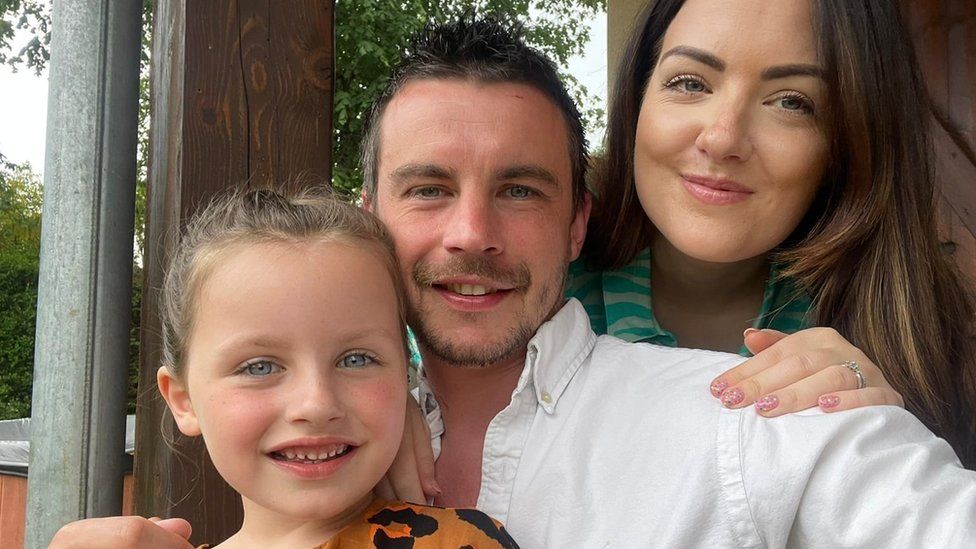
While trapped in a "vicious cycle" of health issues, Anna said the biggest barrier she faced was a lack of mental health support.
"I think that's what made me turn to social media. There's so many people in my situation - somewhere down the line in our journeys we've all got something similar. ".
Anna, who has had symptoms of the condition since the age of 14, has created a community of more than 13,000 Instagram followers and is co-founder of the charity Menstrual Health Project. .
"My Instagram turned to more of a virtual diary, sharing the impact on me.
"I know so many other accounts have helped me feel less alone. ".
Anna said being "shut away" to deal with a new stoma at the start of the pandemic left her feeling "traumatised".
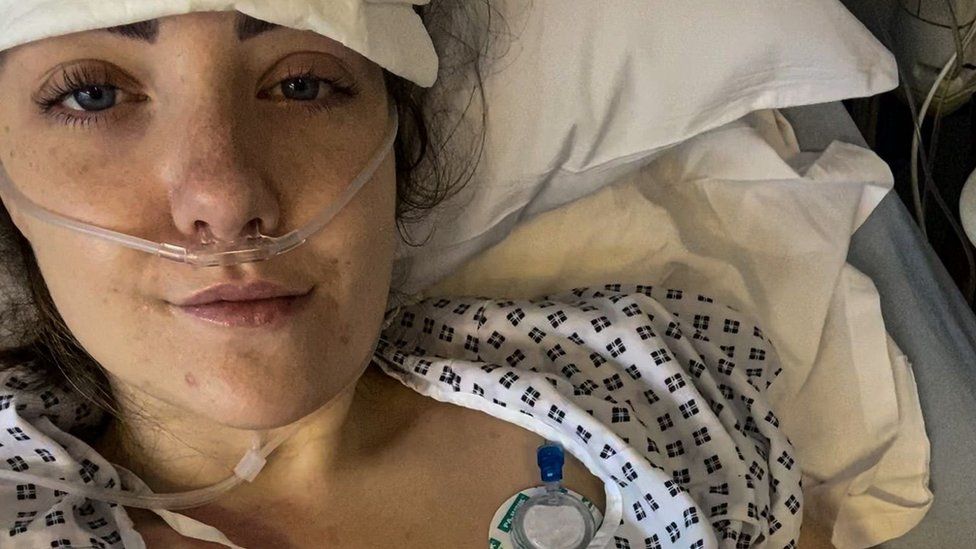
"I think that's why a lot of people turn to others online, for support but also for trying to understand the condition. ".
She said being diagnosed with an invisible disability could be isolating for many, with friends lost along the way.
"For me, they didn't understand why I wasn't going out all of the time, why I didn't go to uni, why I wasn't drinking - all of these things that you feel are socially acceptable at a certain age," she said.
"There is a lack of understanding, because your insides are not falling out of your body for someone physically to see. ".
Anna has attended parliament and hopes to make menstrual health education more widespread and less taboo.
"I've got a daughter. I don't want her to have to suffer the way my generation and older generations have suffered.
"It gives you a voice to kind of shout about whatever you have gone through. " .
Keith Thomas, 61, also has a stoma after being diagnosed with ulcerative colitis in 2008.
He lives in Llanelli with his wife Jane and is a bus driver, but before his ostomy surgery he worked in a factory.
"The years between 2008 and 2012 were absolutely horrendous," he said.
"I'd get up at say 07:00 to be in work for 07:30. I would get to the top of the road in my car, I would soil myself, I'd turn around, go home, have a shower. And then it's a case of do you phone in sick, or do you give it another go? Nine times out of ten I phoned in sick. ".
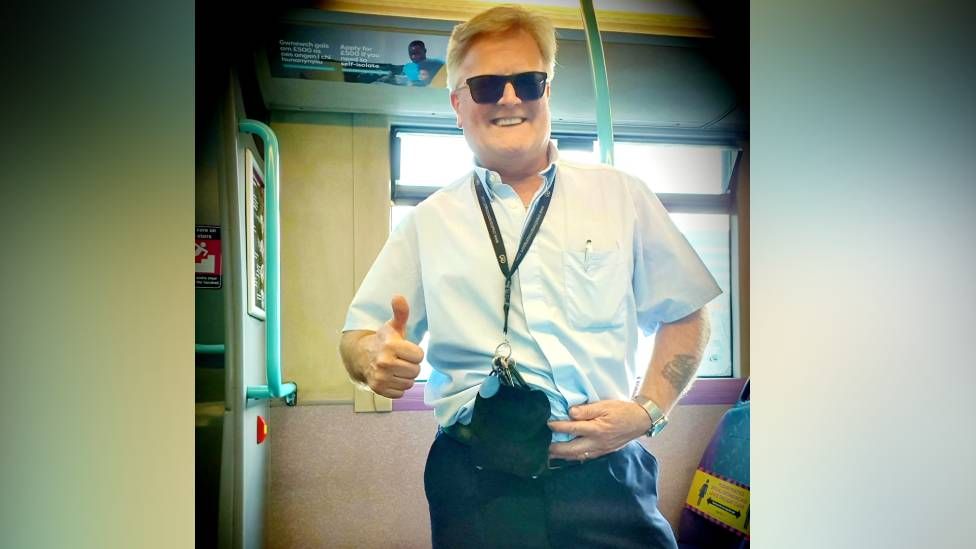
Keith said it was a "dark time" and having his stoma fitted felt like being "born again".
"Everything I put on [social media] is about positivity. Believe it or not, it does help people. When they say positivity breeds positivity, it really does. ".
Like Anna, Keith started using social media to log his experiences, but now has more than 18,000 followers across his accounts, with his largest presence being on TikTok.
"I'm happy to show my bag, and show people that for 61 I look fit, I look healthy, I feel healthier than I ever have," he said.
"I enjoy posting, and I get fantastic feedback. It just allows me to be me. ".
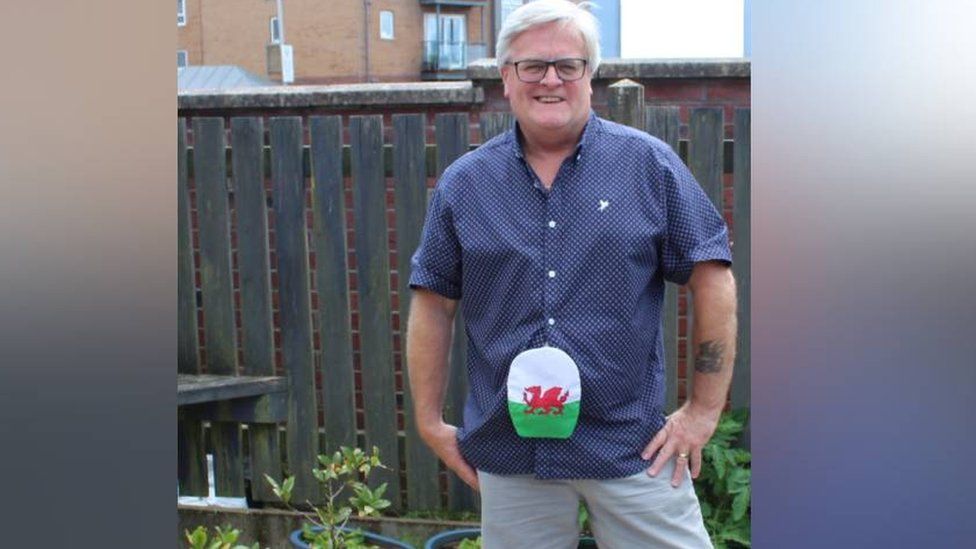
Keith recalled a theatre trip when he he got a dirty look from a fellow audience member for using the disabled toilet.
"People tend to judge before they know anything," he said.
"I look normal. But if I have a bag leak, I have to change. ".
Bethany Davies, 24, from Llanelli, has multiple chronic illnesses, including fibromyalgia, chronic fatigue syndrome, and postural tachycardia syndrome (PoTS).
The Swansea University graduate, who has more than 50,000 TikTok followers, said her turbulent health had made traditional academic and employment routes difficult.
But she said being able to plan her social media work around her health had offered an escape.
Although her main focus is sharing Welsh language and culture, she is beginning to open up more about her non-visible conditions.
"I've struggled with my health, I'm disabled. So [social media] has given me a way to see myself outside of that," she said.
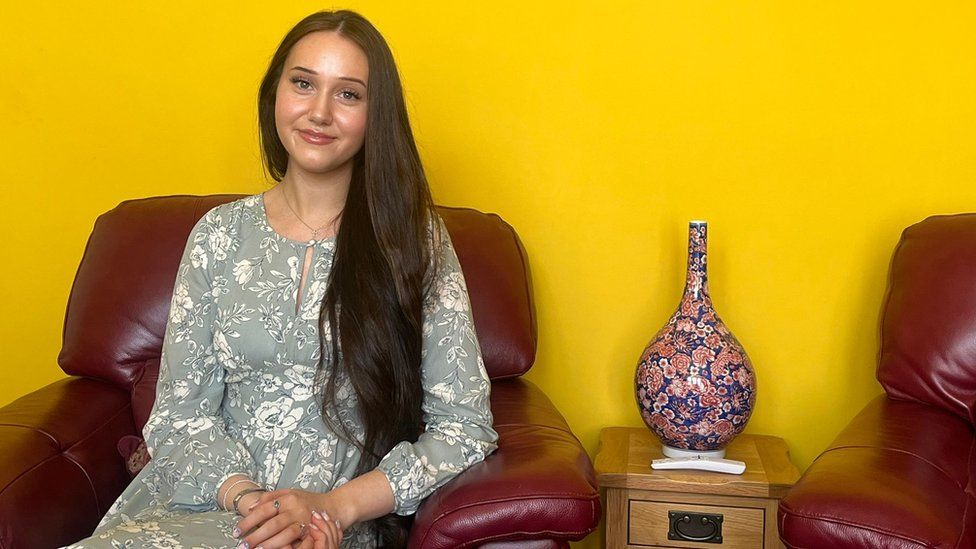
"I had plans to do a Masters. Unfortunately, I have had to give that up, and I've been in and out of hospital," she said.
"Having TikTok, I feel like I represent that community and I can show that invisible illnesses do exist, even if people look like they're fine. You don't feel so alone.
"Being a bit more open about my struggles has really added another dimension to this community, and another conversation that I am really proud to take part in. " .

